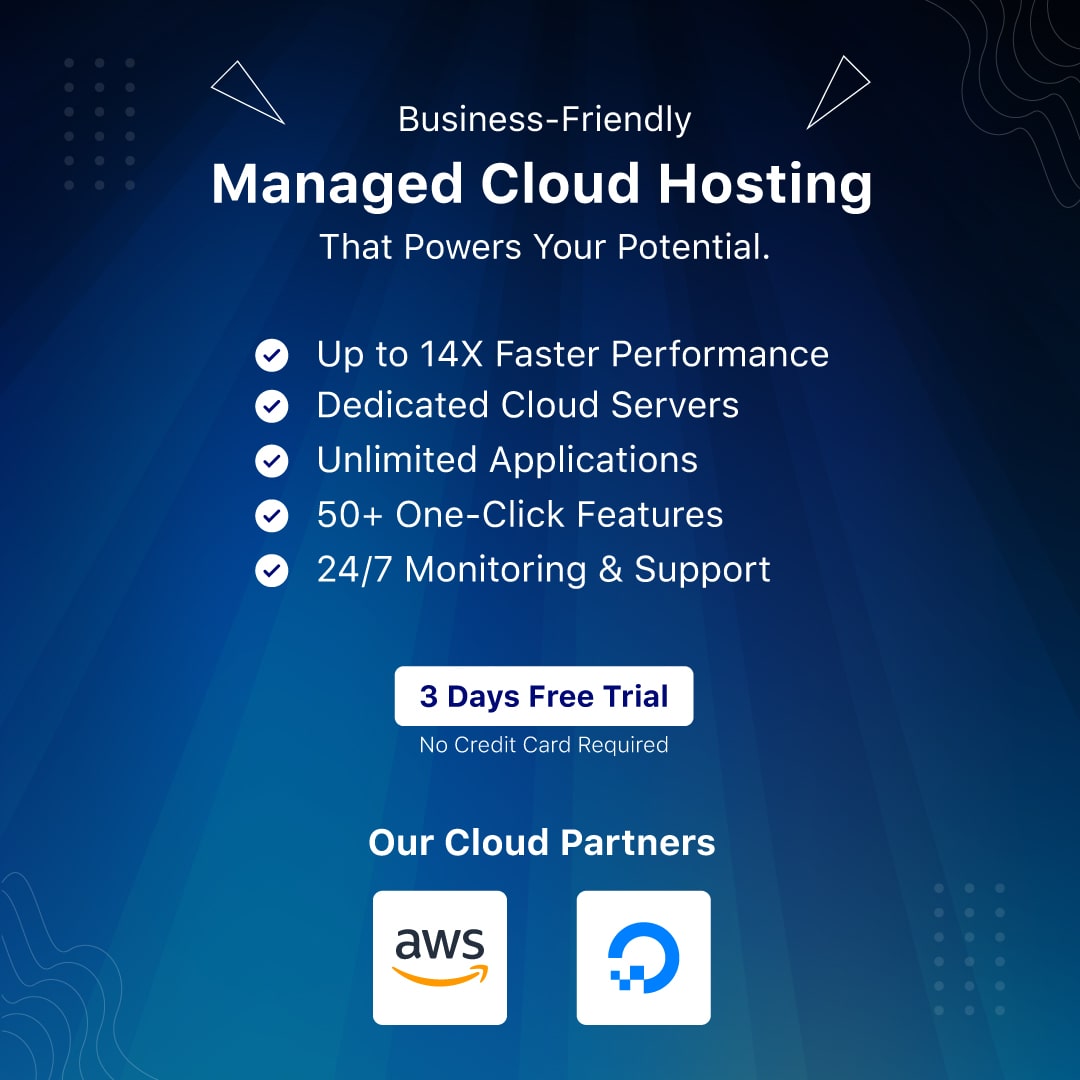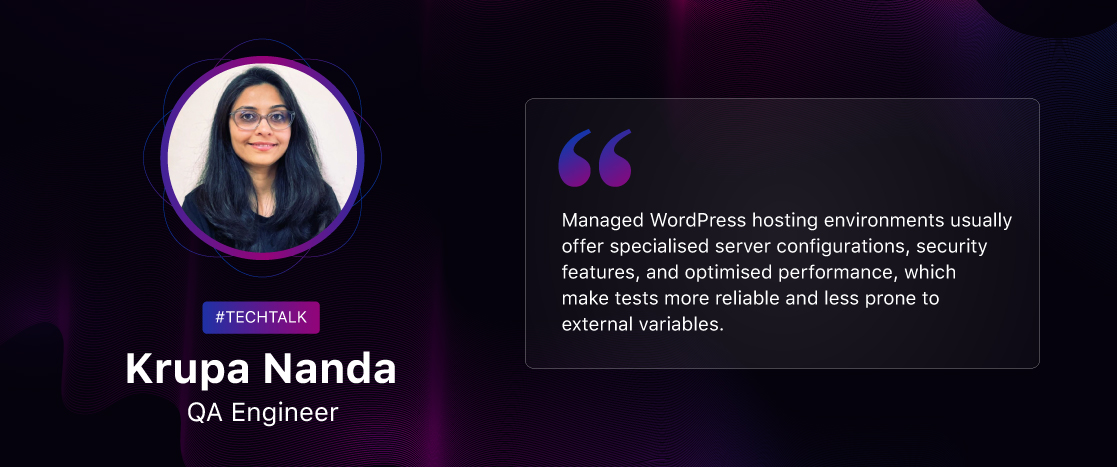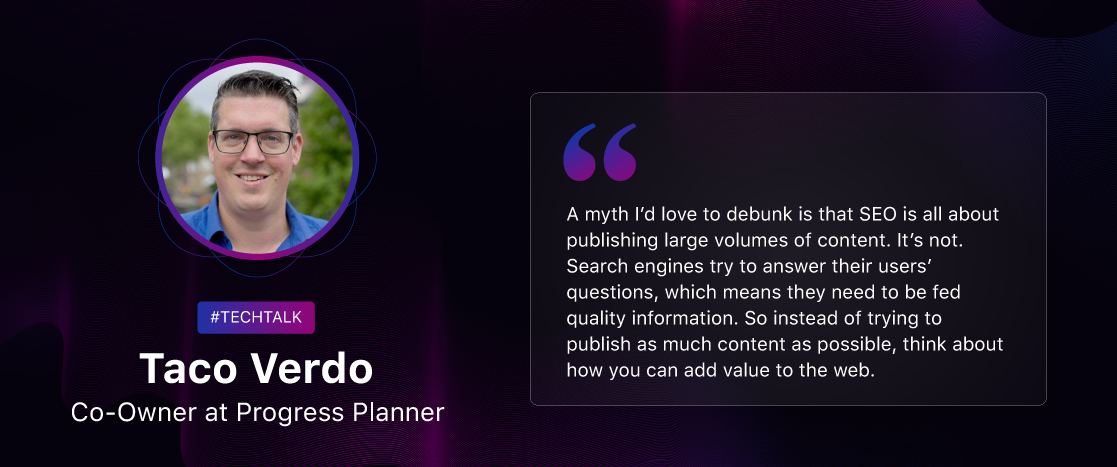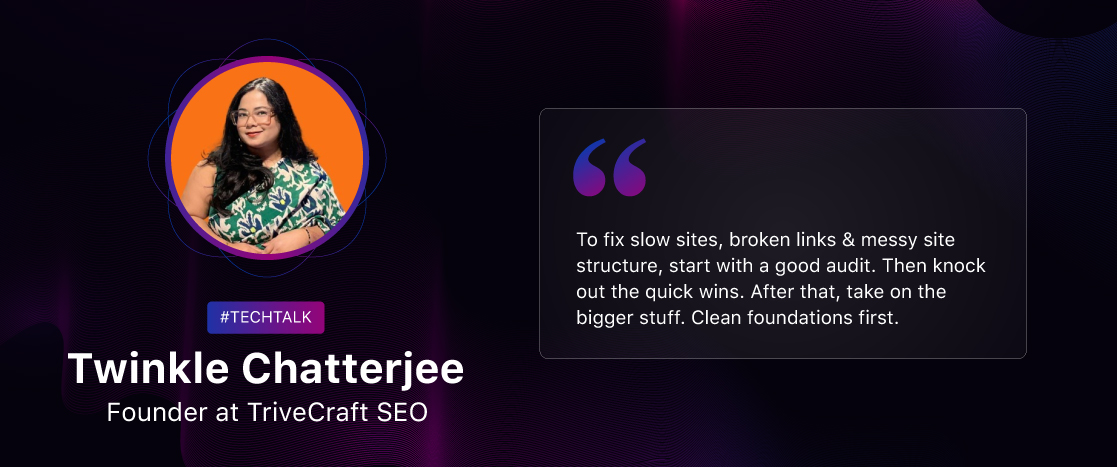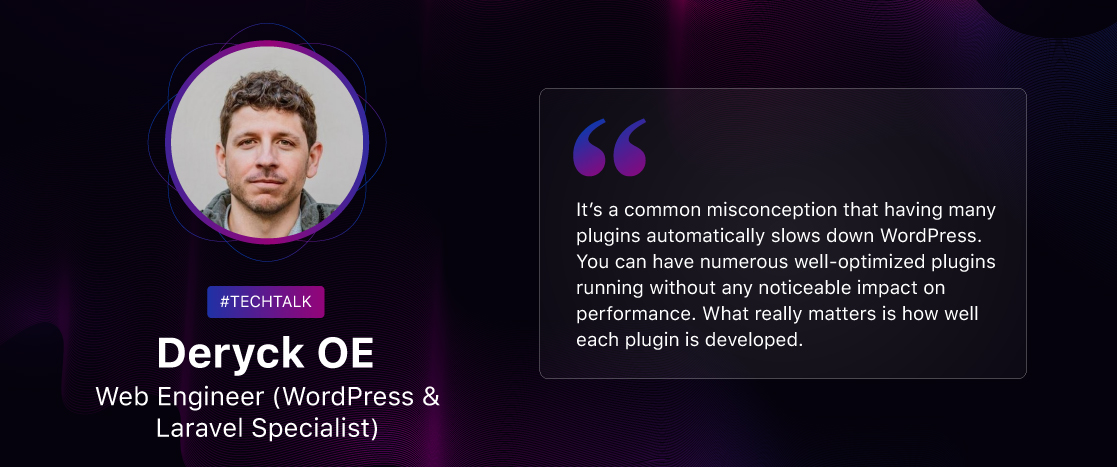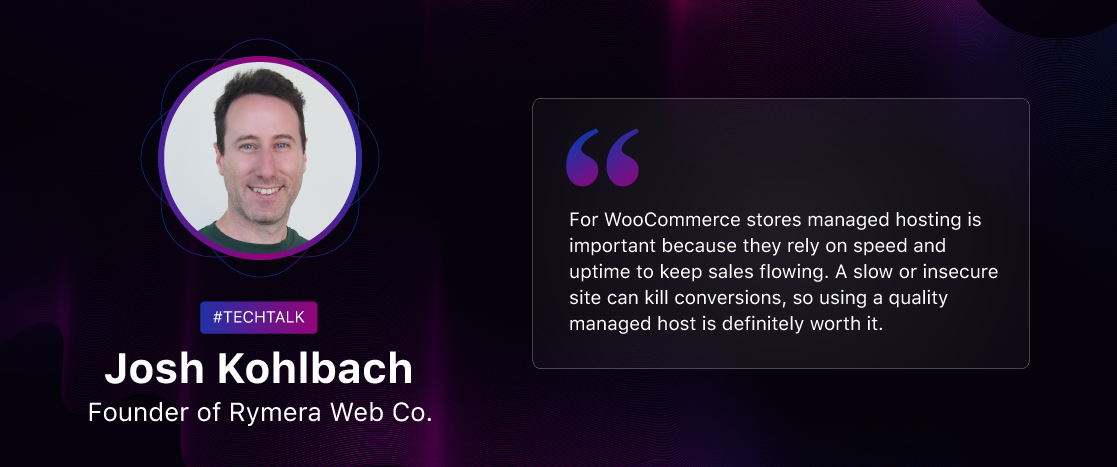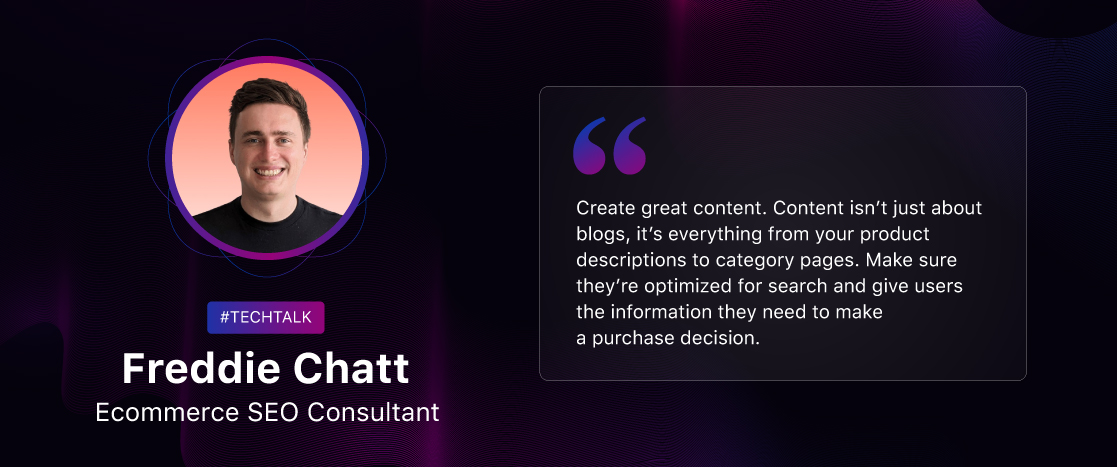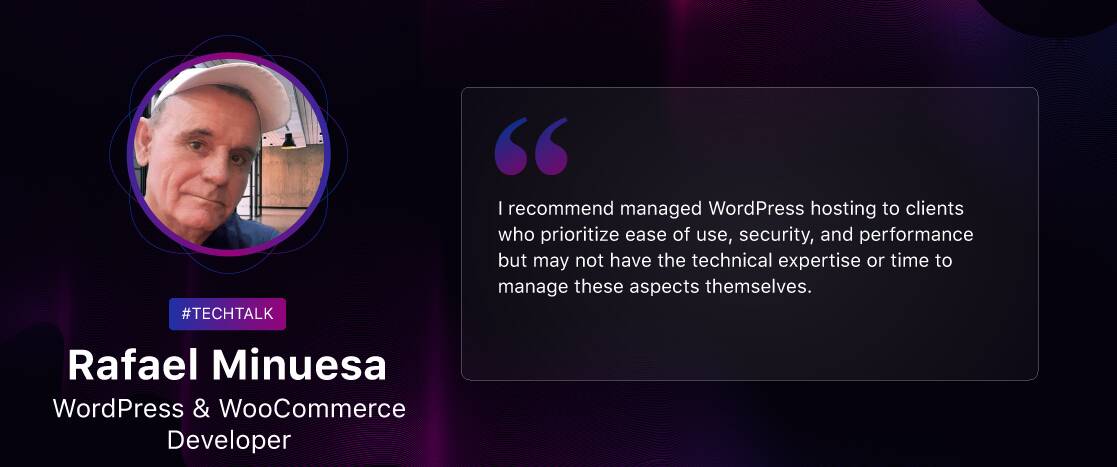
Devrims #TechTalk 047: Rafael Minuesa Discusses WooCommerce Development
This week, we have Rafael Minuesa, a seasoned WordPress and WooCommerce developer with over 17 years of experience in crafting bespoke websites and optimizing e-commerce solutions. With a knack for project management and consultation, Rafael seamlessly blends technical expertise with strategic vision, ensuring client objectives are not just met but exceeded.
His commitment to continuous learning and proactive approach to development make him a valuable asset in the ever-evolving realm of WordPress and WooCommerce development.
In this gripping interview, Rafael provides insights and invaluable lessons he learned in his career.
Devrims: Hi Rafael, thanks for being here today. Can you share an overview of your extensive experience as a WordPress and WooCommerce Developer?
Rafael: Hi there, and thank you for having me here! I have more than 17 years of experience working with WordPress, of which more than 7 are with WooCommerce. I specialize in designing, developing, and optimizing WordPress websites and WooCommerce stores, including custom theme and plugin development, site performance optimization, and the creation of engaging, user-friendly eCommerce solutions. Typically I execute projects from concept to launch, working closely with clients to meet their business objectives.
Devrims: How did you expand your skills into project management and consultation roles?
Rafael: Expanding my skills into Project Management and Consultation roles was a natural progression driven by my desire to leverage my technical expertise to achieve broader business goals.
I focused on three key areas: leadership, continuous learning, and effective communication. I took on leadership roles in development projects, which naturally led me to manage timelines, budgets, and team dynamics. To formalize my project management skills, I pursued relevant training in Agile and Scrum methodologies, which allowed me to transition smoothly into Project Management and Consultation, leveraging my technical background to drive projects and provide strategic advice to clients.
Devrims: With a background in IT and Web Project Management, can you discuss your approach to managing projects efficiently, especially in the realm of WordPress and WooCommerce development?
Rafael: I achieve efficiency in IT and web projects, particularly in WordPress and WooCommerce development, through regular check-ins, clear documentation, and setting realistic deadlines that account for potential challenges. I also emphasize the importance of quality assurance and testing in every phase to mitigate risks early. I always make sure that best practices in WordPress and WooCommerce development are followed, optimizing for performance and security. This proactive and structured approach allows me to manage projects efficiently, deliver on time, and exceed client expectations.
Devrims: As a WordPress/WooCommerce Developer, can you share insights into your development process, including any preferred tools, plugins, or coding practices?
Rafael: My development process as a WordPress/WooCommerce Developer is guided by best practices for performance, security, and scalability. Initially, I conduct a thorough analysis of project requirements to choose the most suitable themes, plugins, and custom development strategies. I prefer using a local development environment like Local by Flywheel for a seamless setup and version control systems like Git to manage code changes and collaborate with teams effectively.
For theme development, I often start with a lightweight framework such as _s (Underscores) or Genesis for custom projects, ensuring responsiveness and fast loading times. When it comes to plugins, I select those with strong support and update history, like Yoast for SEO, Advanced Custom Fields (ACF) for custom data management, and WooCommerce for eCommerce functionality, customizing them as necessary through hooks and filters.
In coding, I adhere to WordPress Coding Standards, using action and filter hooks for extensibility and custom post types and taxonomies to structure content efficiently. Security is paramount, so I implement data validation, sanitization, and nonce checks in my work. For performance optimization, I focus on efficient query writing, caching strategies, and minimizing resource loading.
Devrims: How do you stay updated on the latest trends and advancements in WordPress and WooCommerce development, and how do you incorporate them into your projects?
Rafael: Continuous learning is an essential part of my development process. Staying updated with the latest WordPress and WooCommerce features, coding standards, and industry trends is a MUST if you aim to deliver high-quality, maintainable, and future-proof websites.
Devrims: What plugins, themes and configurations do you find most valuable for WooCommerce?
Rafael: For WooCommerce, I mostly prioritize plugins, themes, and configurations that enhance performance, user experience, and scalability. Here are my top picks:
Plugins:
- CartFlows: For enhancing the WooCommerce checkout process, offering a wide range of features aimed at optimizing conversions and maximizing sales.
- WooCommerce PDF Invoices & Packing Slips: Invaluable tool for WooCommerce store owners, streamlining the invoice and packing slip generation process.
- Booster for WooCommerce: powerful plugin that can transform and significantly enhance the functionality of a WooCommerce store.
- Advanced Product Fields (Product Addons) for WooCommerce: To customize product pages beyond the standard WooCommerce fields.
- CTX Feed: WooCommerce Product Feed Generator.
Themes:
- Storefront: Developed by WooCommerce, it’s highly customizable and offers deep integration with WooCommerce.
- Astra: Lightweight and performance-focused, with pre-built WooCommerce sites.
- Flatsome: Known for its UX builder, making it versatile for creating custom WooCommerce designs without heavy coding.
Configurations:
- Product Variations and Attributes: Efficiently set up to manage product options without overloading the database.
- Secure Payment Gateways: Implementing a variety of payment solutions to cater to a wider audience.
- SEO-Friendly URLs: Configuring permalink settings to include product and category names for better SEO.
- Performance Optimization: Regularly updating and maintaining the site, using a content delivery network (CDN), and optimizing images to ensure fast loading times.
These tools and practices are foundational in creating a robust, user-friendly WooCommerce store that stands out in the competitive e-commerce landscape.
Devrims: What makes WordPress such a powerful CMS in your opinion? What tips do you have for optimizing WordPress performance?
Rafael: WordPress’s power as a CMS lies in its flexibility, extensibility, and user-friendliness. Its vast ecosystem of themes and plugins allows for the creation of virtually any type of website, from simple blogs to complex e-commerce platforms, without requiring deep coding knowledge. The platform’s open-source nature encourages community contribution, leading to continuous improvement and innovation.
For optimizing WordPress performance, here are my top tips:
- Use Quality Hosting: Invest in a reliable and performant hosting provider specialized in WordPress/WooCommerce, for better performance and security. Thank me later.
- Caching: Implement caching mechanisms, either through plugins like WP Rocket or via your hosting provider, to reduce load times.
- Image Optimization: Use tools like Smush or ShortPixel to compress images without losing quality, speeding up page load times.
- Use a Content Delivery Network (CDN): Distribute your site’s content globally to reduce latency and speed up content delivery to users worldwide.
- Regular Updates and Maintenance: Keep WordPress, themes, and plugins up to date, and routinely remove unused plugins/themes.
- Database Optimization: Regularly clean up your database to remove bloat and improve efficiency.
Implementing these practices can significantly enhance your WordPress site’s performance, improving user experience and SEO rankings.
Devrims: Managed WordPress hosting is a popular choice. What benefits do you see in managed WordPress hosting, and in what scenarios do you recommend it to clients?
Rafael: Managed WordPress hosting offers several key benefits, making it an appropriate choice for many scenarios:
- Performance Optimization: Managed hosting provides environments specifically optimized for WordPress, ensuring faster loading times and smoother performance.
- Security: Enhanced security measures, including regular malware scans, SSL certificates, and automatic updates, protect your site from threats.
- Expert Support: Ready-access to WordPress-specific expertise can significantly help in troubleshooting and optimizing your site, saving time and resources.
- Automatic Backups: Regular, automated backups ensure that your data is safe and can be quickly restored in case of any issue.
- Scalability: Managed WordPress hosting can easily accommodate traffic spikes, making it suitable for websites with growing or fluctuating traffic.
I recommend managed WordPress hosting to clients who prioritize ease of use, security, and performance but may not have the technical expertise or time to manage these aspects themselves.
Devrims: Technical support is vital in the event of issues. What level of support do you expect from a WooCommerce hosting provider?
Rafael: Technical support really makes all the difference. From a WooCommerce hosting provider, I’d expect robust, knowledgeable, and responsive technical support that includes:
- 24/7 Availability: Round-the-clock support to address urgent issues that may arise outside of standard business hours.
- WooCommerce Expertise: Specialists who understand the intricacies of WooCommerce and can provide effective solutions, not just general WordPress advice.
- Proactive Monitoring: Active monitoring of server performance and security to identify and mitigate potential issues before they affect the site.
- Resourceful Knowledge Base: A comprehensive library of tutorials, guides, and FAQs for self-help options regarding common issues and best practices.
This level of support ensures that technical issues are resolved quickly and efficiently, minimizing downtime and maintaining optimal site performance.
Devrims: Let’s do a quick rapid-fire round.
| Devrims | Rafael |
| Books or Movies | Movies |
| Mountain or Beaches | Beaches |
| Day or Night | Day |
Devrims: Are there specific lessons or experiences from your career that you believe would be valuable for those entering the field?
Rafael: Well, I hope that the following key lessons from my career can greatly benefit newcomers to the field:
- Embrace continuous learning: The tech landscape evolves rapidly. Staying updated with the latest technologies, trends, and best practices is crucial for growth and relevance.
- Understand the Business aspect: Beyond coding, understanding the business objectives behind projects can enhance your ability to deliver impactful solutions.
- Focus on Problem-Solving: Developing a problem-solving mindset, rather than just focusing on writing code, can lead to more innovative and effective solutions.
- Communication is Key: Clear communication with team members, stakeholders, and clients really is vital for the successful delivery of projects. It’s not just about what you build but also how you convey your ideas and solutions.
- Coopetition over Competition: Working collaboratively with others, sharing knowledge, and learning from peers can accelerate your growth and lead to more successful projects.
- Quality over Quantity: Writing clean, maintainable, and efficient code is more valuable in the long term than just quickly churning out projects without regard for best practices, and who will come after you.
These lessons underscore the importance of adaptability, continuous improvement, and a holistic approach to development and teamwork.
Devrims: We would love to have a look at your work desk.
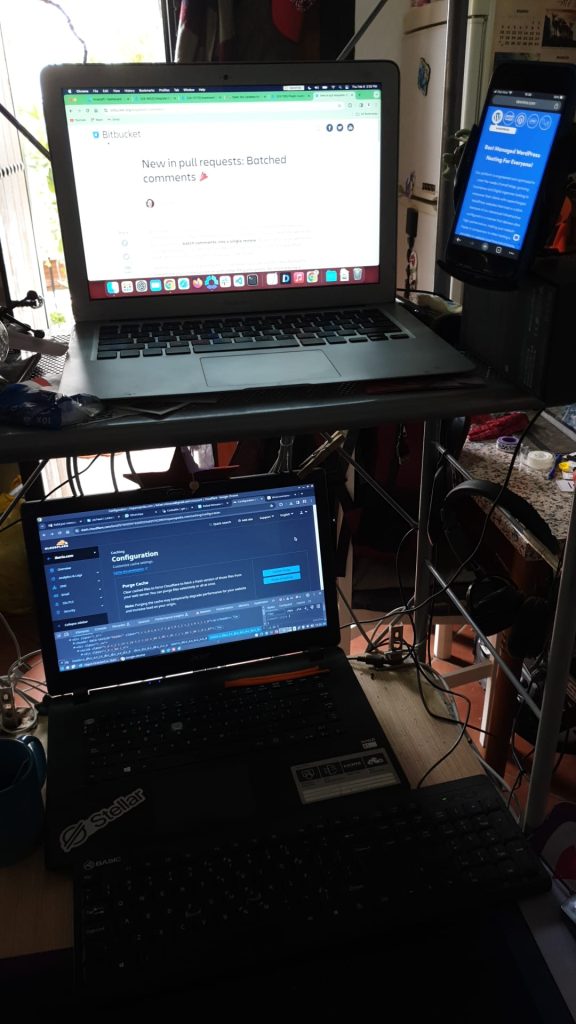
Devrims: Who would you recommend us to interview next?
Rafael: Rafal Gicgier
